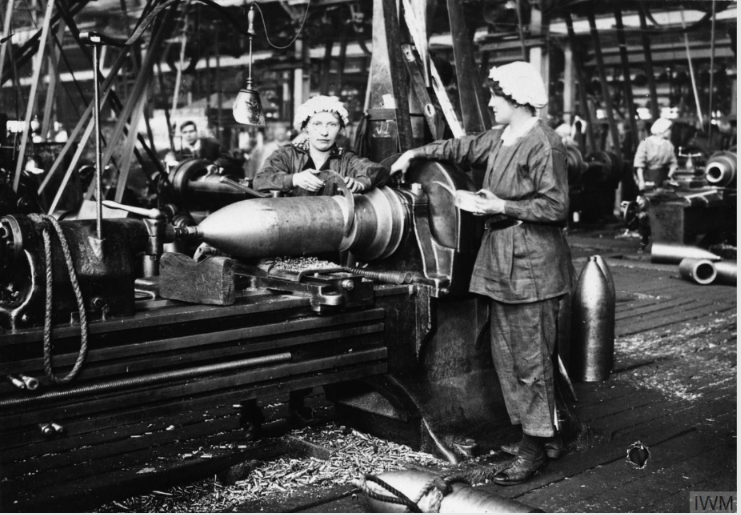The Home Front

Munition workers in Birmingham, 1918
(©Imperial War Museum: Q108408)
Benison, Eric William 15.viii.1915
Boulton, Charles Percy 24.ii.1916
Smith, Lothrop Lewis de Bernière 3.ix.1916
Rowley, Charles Pelham 29.x.1916
Burne, Sambrooke Thomas Higgins 19.x.1916
Palmer, Charles Thomas 9.xii.1916
Carter, Bernard Robert Hadow 7.xi.1917
Mackworth, Arthur Christopher Paul 26.xi.1917
Fitzwygram, Sir Frederick Loftus Francis, 4th Bt 5.v.1920
Bennett, George (Francis) 21.xi.1920
Ashley, Anthony Henry Evelyn 14.i.1921
Gatehouse, Leslie Russell Alcock 3.x.1926
Hood, Alban John Frankland 19.i.1927
The following is the stated policy adopted by the Commonwealth War Graves Commission (CWGC):
I should like to explain that our duties are confined to commemorating those members of the Commonwealth forces who lost their lives in active service in either of the two world wars.
For the Commission’s purposes, the two world war periods are classified as follows:-
– The First World War – 4th August 1914 to 31st August 1921
– The Second World War – 3rd September 1939 to 31st December 1947
This [war grave status] includes those who were killed in action or died of their wounds, it also includes those who died of disease, illness, accident, suicide, homicide or judicial execution.Additionally, those who were discharged from service but whose deaths occurred within the war periods, from injury or illness caused by or exacerbated by their service in the war. These cases only qualify if it was proven to the service authorities that death was service attributable.
All the men above, with the exception of Gatehouse and Alban Hood, fall within the CWGC remit. The deaths of Gatehouse and Hood were attributed, at least in part, to their war service and so at the request of their families their names were included on the College Memorial.